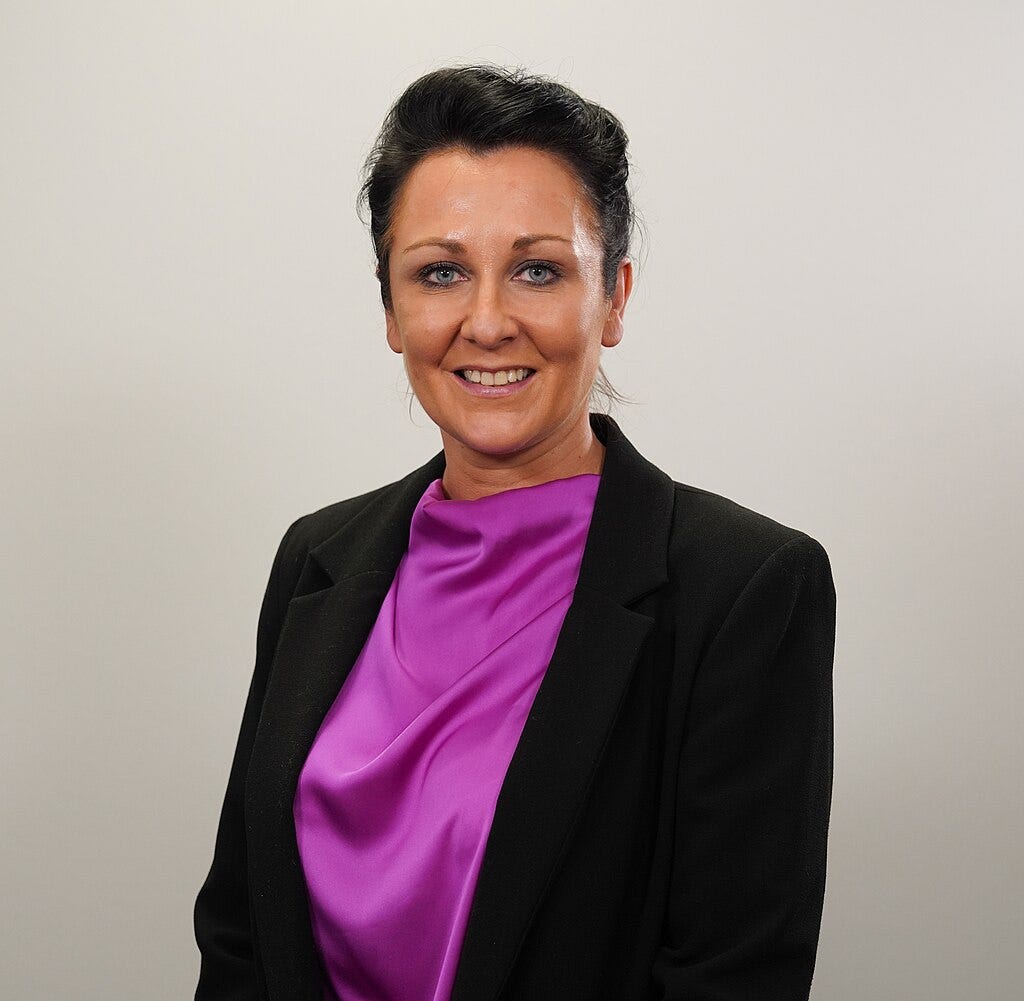News Round-Up: UK's 'Green Obsession', New Hate Crime Law in Scotland, and Harvard's Treatment of a Renowned Professor
Every week, the editorial team of Freedom Research compiles a round-up of news that caught our eye, or what felt like under-reported aspects of news deserving more attention.
Over the past week, the following topics attracted our attention:
Professor Martin Kulldorff is no longer a Harvard medical professor: a price he paid for staying true to science during the pandemic.
Scotland restricts freedom of speech with a new hate crime law.
Influential British Conservative: let's postpone Net Zero targets.
NHS no longer prescribes puberty blockers to children.
German schoolchildren were banned from drinking water in class during Ramadan.
Professor Martin Kulldorff is no longer a Harvard medical professor: a price he paid for staying true to science during the pandemic
"I am no longer a professor of medicine at Harvard. The Harvard motto is Veritas, Latin for truth. But, as I discovered, truth can get you fired. This is my story—a story of a Harvard biostatistician and infectious-disease epidemiologist, clinging to the truth as the world lost its way during the Covid pandemic," writes Martin Kulldorff, now a former Harvard medical professor, in the City Journal.
Swedish-born Kulldorff is an internationally renowned top scientist who has published more than 200 research papers. During his career, he has been the developer of many of the statistical and epidemiological methods used for disease surveillance, including the early detection and monitoring of infectious disease outbreaks and post-market drug and vaccine safety monitoring.
Kulldorff came into conflict with Harvard University during the Covid pandemic when scientists who resisted the general propaganda of fear-mongering and who also tried to ask critical questions about the rapidly marketed Covid vaccines were labelled and censored.

Kulldorff also experienced this. He writes that it was clear from the start that Covid was not a threat to everyone, but particularly to the older at-risk group. “While anyone can get infected, we have known since early 2020 that more than a thousandfold difference in Covid mortality risk holds between the young and the old,” Kulldorff writes. He was therefore opposed to the 'lockdown' policy because it brought irreparable harm to societies instead of imagined benefits. In October 2020, together with Sunetra Gupta, Professor of Theoretical Virology at Oxford University, and Jay Bhattacharya, Professor of Medicine at Stanford University, he published the Great Barrington Declaration, which called for a focus on the at-risk groups and a continuation of life as normal as possible for the others. Although their declaration received almost a million signatures worldwide, including tens of thousands of scientists and medical professionals around the world, its authors were labelled 'fringe' scientists by influential Covid policymakers.
In addition, Kulldorff wanted a fair and evidence-based look at the fast-tracked Covid vaccines. Kulldorff writes that new drugs and vaccines are always associated with side effects that are not immediately known. That is why he was in favour of vaccinating at-risk groups because they could benefit from the vaccine. However, he was not in favour of vaccination outside the risk group. He also said that there was no logic in insisting that people who have had the disease should be vaccinated. Vaccine mandates were both unscientific and unethical, he writes. Because of his views, he was also censored by social media platforms under pressure from the US administration, and as a result, he and others who were unjustifiably censored took the country to court. We have written about this case here. It is currently awaiting a hearing in the US Supreme Court.
The reason for Kulldorff's departure from Harvard was related to the fact that he had also been suffering from Covid. He points out that he suffered quite severely from the disease, being a member of an at-risk group. After his recovery, there was no need for him to be vaccinated against the disease, as the immunity from the disease is stronger than that from the vaccine. However, the university mandated vaccines for all those who had had the disease. "The beauty of our immune system is that those who recover from an infection are protected if and when they are re-exposed. This has been known since the Athenian Plague of 430 BC—but it is no longer known at Harvard," Kulldorff writes.
Kulldorff adds that he wrote to the university asking to be exempted from the mandate for medical reasons, but was refused. In an unabashedly ironic formulation, he also requested an exemption on the grounds of a so-called religious exemption. “Having had Covid disease, I have stronger longer lasting immunity than those vaccinated (Gazit et al). Lacking scientific rationale, vaccine mandates are religious dogma, and I request a religious exemption from COVID vaccination." While we can appreciate that the irony was appropriately accurate in this case, Kulldorff was not exempted here either.
“If Harvard and its hospitals want to be credible scientific institutions, they should rehire those of us they fired. And Harvard would be wise to eliminate its Covid vaccine mandates for students, as most other universities have already done,” he writes.
Scotland restricts freedom of speech with a new hate crime law
The new Hate Crime and Public Order Act will come into force in Scotland on the 1st of April. According to critics, this will put further restrictions on free speech, which is already under attack. The new law expands the 'protected characteristics' against whom 'stirring up hatred' is a criminal offence. Until now, these protected characteristics included race, meaning that a person could be punished for inciting hatred on racial grounds. Now, age, disability, religion, sexual orientation, and gender identity will be added to similar protected characteristics.
Scottish Community Safety Minister Siobhian Brown said that while the government respects everyone's right to freedom of expression, at the same time no one should live in fear or feel they do not belong in the society. “Hate crime is behaviour that is both criminal and rooted in prejudice. It can be verbal, physical, online or face to face. The new law will give greater protections to those who need it and helps to form the basis of understanding about the type of behaviour that is not acceptable in our society," she said.

However, critics say the new law means that those who make justified criticisms of a member of a so-called protected group could also face criminal sanctions. For example, trans activists are already using the same law and trying to report J.K. Rowling, a well-known author and women's rights activist who has said on social media that men who claim to be women are not women, to the police. However, the police say they do not plan to prosecute posts made by individuals before the law comes into force. However, it confirms that it will investigate all complaints made after April 1. A network of Hate Crime Reporting Centres has now been set up in Scotland to improve the handling of complaints.
The changes to the law were adopted already in 2021, but their entry into force was delayed as the police said they were not ready to take on the new responsibilities sooner than that. Now, in the run-up to the law's adoption, Police Scotland has also launched an awareness campaign on hate crimes with a character called the 'Hate Monster', who feeds on other people's emotions, such as someone's insecurities or anger.
Influential British Conservative: let's postpone Net Zero targets
Jacob Rees-Mogg, a member of the British Parliament, a former minister and influential member of the Conservative Party, is calling for an indefinite postponement of Net Zero targets, The Independent reports. Rees-Mogg commented in a speech to the parliament that the government's announcement to build new gas-fired power stations was a first step against the Net Zero obsession. "We want cheap electricity, and we should have gas and we should have coal and we should postpone net-zero indefinitely because we are only 1% of global emissions, we are making no difference and the US economy is growing consistently faster than ours because of cheap energy,” he said.
Energy Minister Graham Stuart disagreed with his Tory colleague, arguing that the world is in a climate emergency and that CO2 emissions must be cut because of it. The British government's goal is to reach carbon-free electricity generation by 2035 and Net Zero by 2050.
NHS no longer prescribes puberty blockers to children
The National Health Service (NHS) in England has confirmed that children will no longer be prescribed puberty blockers as "medicine" in gender identity clinics, Sky News reports. Puberty blockers inhibit the production of sex hormones and stop physical changes in children during puberty, such as breast development or facial hair growth. The NHS confirms that in England they will now only be available to children as part of clinical trials. '
The announcement by the NHS was welcomed as a landmark decision by the current British Conservative government, which said it would help to ensure evidence-based care that is in the best interests of the child.
It follows a public consultation on the issue and an interim policy and comes after NHS England commissioned an independent review of gender identity services for children under 18 in 2020.
The review followed a sharp rise in referrals to the Gender Identity Development Service (GIDS) – a specialised service for young people who experience difficulties in the development of their gender identity, which is closing at the end of March, following repeated scrutiny. Run by the Tavistock and Portman NHS Foundation Trust, GIDS had 5,000 more referrals in 2021/22, compared to just under 250 a decade earlier.
Dr Hilary Cass, who led the review, published an interim report in February 2022, saying there was a need to move away from one unit and recommended regional options be made available to better support the children.
She also said there was a lack of long-term evidence on what happens to young people prescribed blockers - adding that GIDS had not gathered routine and consistent data, meaning it was "not possible to accurately track the outcomes and pathways that children and young people take through the service".
Currently, approximately one hundred children in England are on puberty blockers. Such interference in children's development, of course, often has serious consequences. Puberty blockers can cause emotional instability, depression, and other mental disorders in children as a fairly common side-effect. They can also cause lasting physical ailments such as osteoporosis, seizures, cognitive impairment, and, when taken in combination with cross-sex hormones, sterility.
German schoolchildren were banned from drinking water in class during Ramadan
Teachers at a school in Frankfurt, Germany, banned students from drinking water in the classroom during Ramadan, Remix News reports. The issue was that three of the 27 pupils in one of the school's fifth grades came from a Muslim family who fasts during Ramadan. Fasting during Ramadan means abstaining from all food and drink, including water, during the day. Probably to be tactful towards these three students, at least two of the school's teachers forbade the students to keep water bottles on their desks and ordered them to go outside or in the corridor to fill their bottles instead of using the water dispenser in the hall.
Parents found this requirement strange. One father commented that children in fifth grade are usually 10 or 11 years old, and even for Muslims, the fasting requirement does not apply until the age of 14. He also found it incomprehensible that the basic physical needs of 24 children were not taken into account because of three children. The school declined to comment on the story.

Frankfurt also hit the news headlines last week for being the first German city to install festive lights in its city centre to celebrate Ramadan.




